
Marine biologist Antje Boetius was a PhD student when she first sailed to the Arctic thirty years ago. The Arctic Ocean's icy, white expanse had left her amazed.
Boetius is now director of the Alfred Wegener Institute in Bremerhaven, Germany's biggest polar research institute. On August 3 this year, she returned to the Arctic aboard the same ship of her first journey-the 42-year-old German icebreaker Polarstern.
It was Polarstern's seventh journey to the North Pole. Aboard the vessel with Boetius this time was a team of 53 scientists, largely PhD students from across the world, and a crew of 44. Boetius was the team's leader and chief scientist.
The team began its two-month journey from Tromso, Norway. Their mission: to study the effects of climate change in the Arctic in September, when the extent of sea ice touches the annual low.
The scientists say there has been a huge change in the polar landscape in the past three decades. Earlier, it was "extremely difficult and challenging" for the Polarstern to break ice and navigate the sea, but this time it was "shockingly very easy". The ice was no longer three to four metres thick; it had thinned out to just one metre. Polarstern could just glide past it.
"It doesn't even break the ice. It just moves through the ice as if it were butter," says Boetius, who returned with her team to Polarstern's home port of Bremerhaven in early October.
The expedition is scientifically significant because the summer of 2023 was the hottest on record since 1880, according to scientists at NASA's Goddard Institute of Space Studies in New York. For Boetius and fellow scientists, the loss of sea ice in the Arctic was expected, but the change in landscape nevertheless came as a shock. "Normally you find thriving topical sea algae, but it was all just wide and empty this time. We were shocked because the area we saw was so huge," says Boetius.
この記事は THE WEEK India の November 12, 2023 版に掲載されています。
7 日間の Magzter GOLD 無料トライアルを開始して、何千もの厳選されたプレミアム ストーリー、9,000 以上の雑誌や新聞にアクセスしてください。
すでに購読者です ? サインイン
この記事は THE WEEK India の November 12, 2023 版に掲載されています。
7 日間の Magzter GOLD 無料トライアルを開始して、何千もの厳選されたプレミアム ストーリー、9,000 以上の雑誌や新聞にアクセスしてください。
すでに購読者です? サインイン
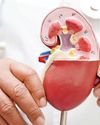
WHEN THE FILTERS FAIL
With chronic kidney disease on the rise in India, THE WEEK spoke to four patients to chronicle their struggles and hopes
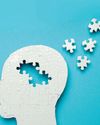
STROKE SURVIVORS HAVE A HIGHER RISK OF DEMENTIA
ABOUT ONE-FIFTH OF STROKE survivors will eventually get a diagnosis of dementia, finds a Canadian study published in the journal Neurology.

Highs and lows of aviation safety
A recent spate of fatal air accidents around the world has once again sparked a debate about aviation safety. With India's aviation sector being the fastest growing in the world, this should interest all Indians. As an active pilot for three decades, it is certainly of great interest to me.

IS SEATED OR SUPINE BLOOD PRESSURE MEASUREMENT MORE ACCURATE?
A STUDY FROM HARVARD UNIVERSITY, published in JAMA Cardiology, found that patients who had elevated blood pressure while lying down (supine position) were at a higher risk for heart disease, stroke, and death-even if their seated blood pressure readings were normal.
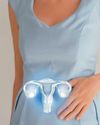
Beating cervical cancer
When detected early, it is highly treatable with good outcomes

REGULAR FLOSSING MAY REDUCE RISK OF STROKE/AFIB
REGULARLY FLOSSING YOUR TEETH may not only protect your gums, but also lower your risk of stroke as well as irregular heart rhythms such as atrial fibrillation.

TWIN PREGNANCIES DOUBLE THE RISK OF HEART DISEASE
MOTHERS OF TWINS are twice as likely to be hospitalised for heart disease in the year after delivery, according to a US study published in the European Heart Journal. The risk is even greater for mothers of twins who had high blood pressure during pregnancy.

Banking on biosimilars
The pharmaceutical industry is experiencing a biosimilar boom, and India is among the best-positioned countries to capitalise on it. Biosimilars are biological medicines that closely resemble an already-approved reference biologic.
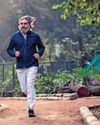
PREHABILITATION BEFORE SURGERY IMPROVES OUTCOMES
WHAT IS PREHABILITATION, or prehab? It refers to the process of preparing for a surgery by exercising and eating a nutritious diet to improve surgical outcomes.
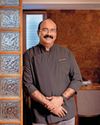
CULTURE IN A CLAY POT
Chef Regi Mathew takes Kerala cuisine to New York with Chatti, hoping to showcase the immense potential of Indian regional food